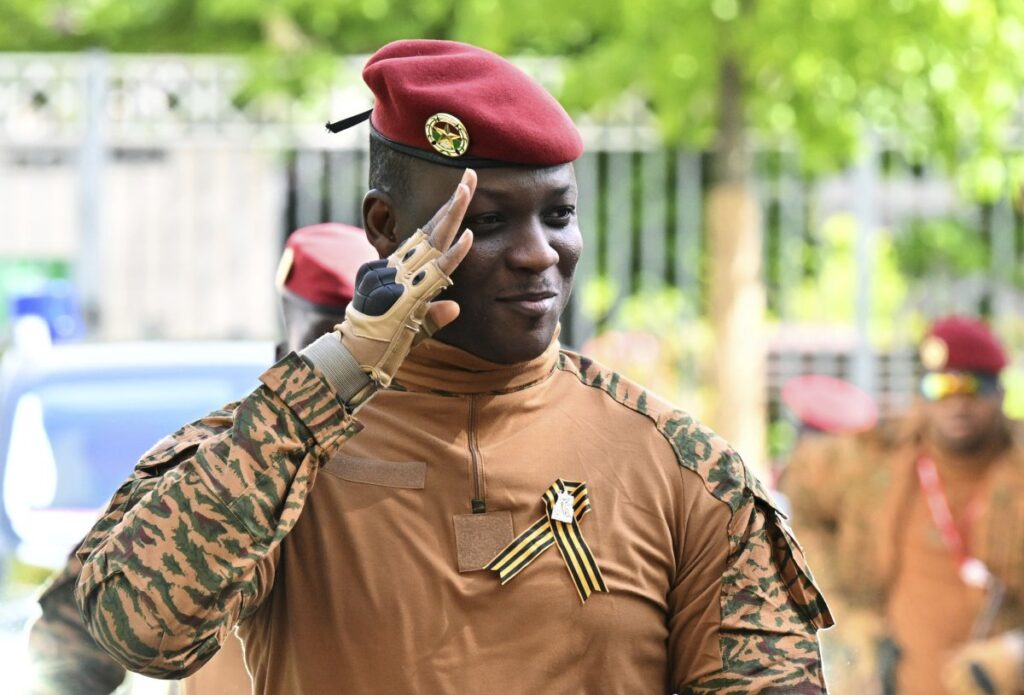Capt Ibrahim Traoré: A New Era for Burkina Faso
Ibrahim Traoré, a captivating 37-year-old military leader, has risen to prominence in Burkina Faso, portraying himself as a champion of pan-Africanism while aiming to liberate his nation from perceived Western control. Since taking power in a coup in 2022, Traoré has presented a strong political stance that resonates with many across the African continent and even beyond.
A Growing Influence
Traoré’s approach has garnered admiration, with supporters likening him to historical figures such as Thomas Sankara, Burkina Faso’s iconic Marxist revolutionary often referred to as ‘Africa’s Che Guevara.’ Beverly Ochieng, a researcher at Control Risks, remarked, “His messages reflect the age we are living in, as many Africans question their relationships with the West amidst persistent poverty on a resource-rich continent.”
Originally aligning with Russia instead of France, Traoré’s regime implemented left-leaning economic policies, including the establishment of a state-owned mining company and mandates for foreign firms to yield a 15% stake in their local operations. This strategic pivot includes recent agreements with Russian miner Nordgold for investments in Burkina Faso’s burgeoning gold sector.
Challenging the Status Quo
Under Traoré’s directive, Burkina Faso has embarked on a “revolution” intended to ensure that the nation reaps the benefits of its mineral wealth. This initiative entails the construction of a gold refinery and the creation of national gold reserves for the first time in the country’s history. However, past Western investments are encountering challenges, with Australian firm Sarama Resources initiating arbitration actions after a license withdrawal, and two gold mines previously held by foreign entities being nationalized.
| Action | Description | Impact |
|---|---|---|
| Nationalization of Mines | Two gold mines taken over by Traoré’s government. | Increase in state revenues. |
| Partnership with Russia | Deployment of Russian paramilitary forces. | Shift in military alliances. |
| Formation of Gold Reserves | Establishment of national gold reserves. | Enhanced economic stability. |
Youthful Momentum
Traoré’s popularity surged largely due to his adaptability to social media, harnessing it to project a revolutionary image, albeit sometimes mixed with misinformation. His speech at the 2023 Russia-Africa summit where he admonished African leaders to cease being puppets of imperialist powers captured significant attention and was widely disseminated, particularly by Russian media.
Despite Traoré’s embracing rhetoric, challenges remain. Burkina Faso is still grappling with a decade-long Islamist insurgency, and while Traoré promised to tackle these issues, his administration has faced criticism for stifling dissent and suppressing opposition voices.
A Shift in Political Sentiments
As many African nations witness dwindling support for Western-style democracy, Traoré’s rise symbolizes a shift towards alternative governance models. The median age in Burkina Faso is significantly low, enhancing Traoré’s appeal among the youth. His strategy and communication style have drawn parallels to earlier leaders, rekindling nostalgic support for post-colonial governance.
While he projects confidence and a commitment to a complete reinvention of Burkina Faso’s governance, experts suggest that for a lasting legacy, Traoré must navigate the complexities of governance and not merely personal power consolidation.
Ultimately, Traoré’s journey represents a complex landscape of youthful aspirations for change against a backdrop of historical struggles and contemporary challenges, making the future of his leadership a topic of significant interest across the world.


